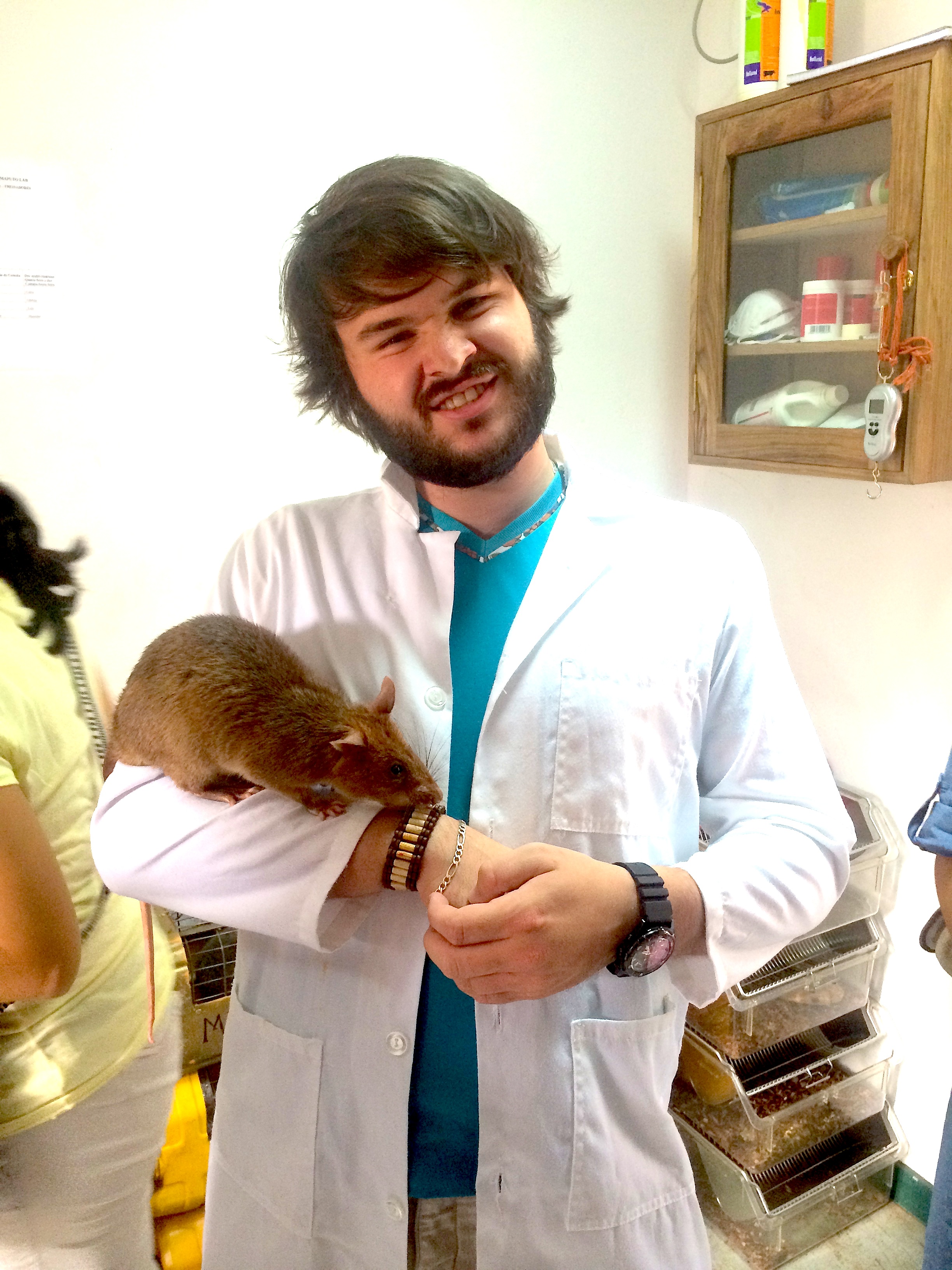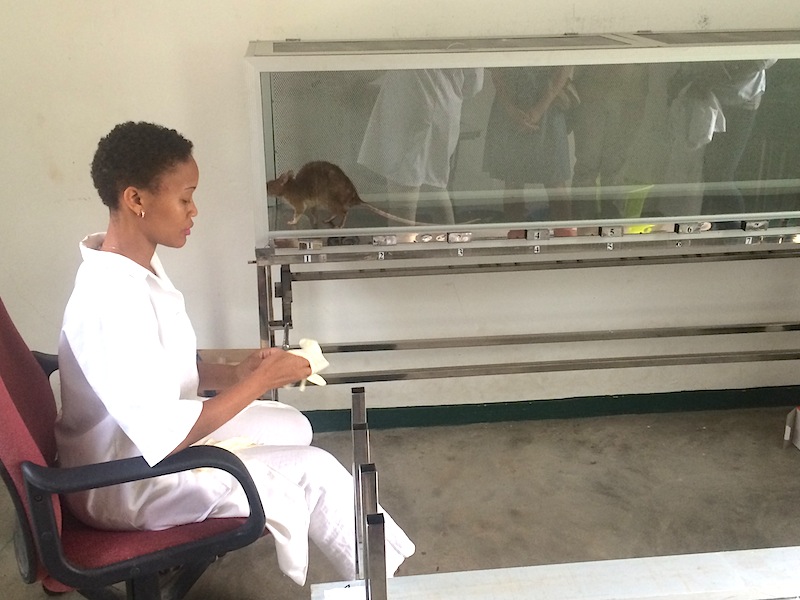Story adapted from African Languages Initiative (AFLI) Student Jacqueline Rojas, Florida State University
We arrived at the Belgian NGO APOPO laboratory in Eduardo Mondlane University's College of Veterinary Medicine in Maputo, Mozambique, and were introduced to Galinha, Henry, and Tariq African pouched rats the size of small dogs who are being trained in laboratories by APOPO to be HERO rats in locations such as Maputo. Rats like Galinha, Henry, and Tariq were initially used as mine-detectors in countries like Mozambique, Tanzania, and Namibia; however, we were there to witness the final stages of something that may potentially impact the lives of millions in Africa. Galinha, Henry, and Tariq were being trained to detect tuberculosis.
Within 9 months, the rats were exposed to various TB samples. Each rat was placed inside a long glass cage designed with holes at the bottom allowing for the TB samples to be strategically arranged underneath. A team of three Trainer, Observer, and Helper assisted and studied each rat through the process. Gradually, as the samples were uncovered one by one, the rat followed the scent of the samples and dependent upon the rat's reaction, contamination was determined.
A sample contained no TB if the rat immediately moved on. On the other hand, if the rat hovered above the sample for 3 to 5 seconds, this indicated the presence of TB. If TB was suspected, the Trainer called the number on the sample and the Observer recorded it. The rat was then rewarded with morsels of food through two tiny holes on the sides of each cage. Throughout the day, multiple rats tested the same group of various TB samples and once established that a specific sample was contaminated with TB, the laboratory notified the place where the sample originated.
As one of the few people who had the opportunity to witness the rats in training, I made my own personal observation: some of the rats were more interested in locating the morsels of food as opposed to sniffing the samples. One of the trainers explained that there are times when the samples are prepared incorrectly or, sometimes they simply have "off days." Taking into consideration that these rats were still in training they are by far more efficient than humans at accurately detecting TB.
To learn more about the "hero" rats, check out National Geographic here.
To learn more about AFLI Portuguese in Mozambique, visit here.


